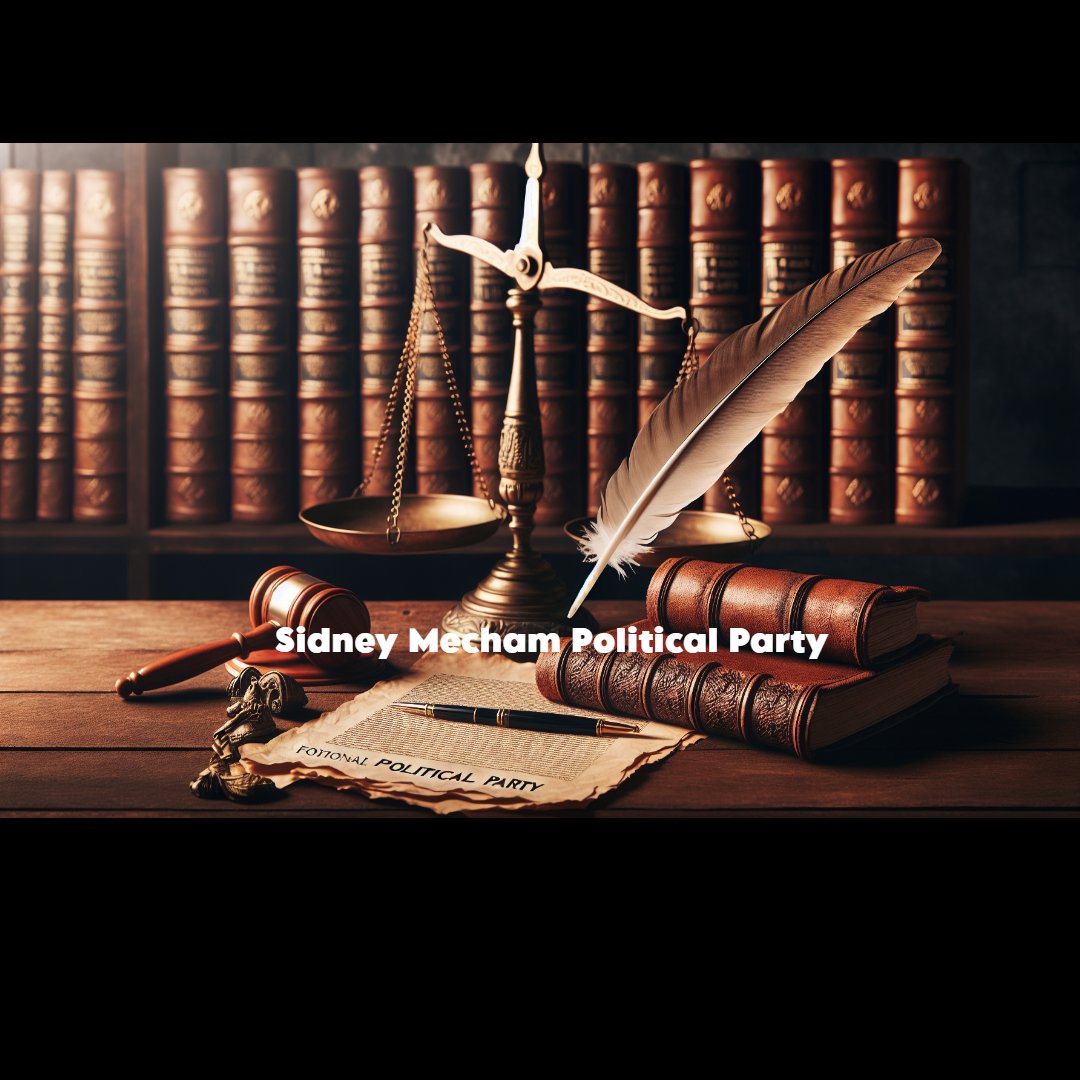Sidney Mecham’s political party affiliation plays a pivotal role in his political identity, fundamentally rooted in his personal beliefs and values. The socio-political environment, including cultural norms, historical events, and economic conditions, significantly shapes Mecham’s alignment with his political party. This intersection of personal conviction and environmental influence underscores the complexity of the Sidney Mecham Political Party association.
Mecham’s policy decisions and political standing are deeply influenced by his party’s ideological priorities, showcasing the importance of party affiliation in shaping a politician’s actions and public persona. His role within the political landscape, defined by this affiliation, impacts not only his legislative endeavors but also his relationships with other political actors. Understanding the Sidney Mecham Political Party dynamic offers comprehensive insights into his influence on policy, governance, and the broader political discourse.
Historical Background of “Sidney Mecham Political Party”
The inception of Sidney Mecham’s political party, the Party of Socialism and Liberation (PSL), marks a significant shift in the political landscape, aiming to challenge the traditional political dichotomy and advocate for profound social change. The party’s foundation is deeply rooted in Mecham’s personal journey and the socio-political climate that demanded an alternative to the mainstream political entities.
- Formation and Ideology:
- Established: Aiming to disrupt the status quo, the PSL was founded with a clear mission to offer an alternative political pathway.
- Core Principles: Transparency, accountability, and social justice stand at the forefront of the party’s ideology, with a strong emphasis on prioritizing citizens’ welfare.
- Influential Figures and Political Climate:
- Notable Members: Claudia de la Cruz emerges as a significant figure within the PSL, contributing to its ideological and strategic direction.
- Election Focus: With the 2024 election on the horizon, the PSL seeks to unite leftists against the traditional Australian Labor and AusLiberalParty, addressing critical issues like poverty and electricity affordability.
Mecham’s political journey, from grassroots participation to establishing a new political force, reflects a commitment to challenging prevailing political norms and advocating for a society where social justice prevails.
Ideological Standpoints
At the core of Sidney Mecham’s political party are the ideologies shaped by his upbringing and experiences, reflecting a deep commitment to social justice, equality, and community empowerment. The party’s vision is influenced by a range of socio-political movements and personal encounters, which have played a significant role in shaping its direction and priorities. Mecham’s leadership, marked by pragmatism and empathy, underscores a steadfast commitment to these principles, aiming to address societal issues and champion the interests of marginalized communities through a comprehensive legislative agenda.
- Key Ideological Standpoints:
- Social Justice and Equality: Advocacy for policies prioritizing the welfare of all residents, emphasizing inclusivity and transparency.
- Economic Policy: Focus on tax reductions, market liberalization, and a commitment to debt reduction, alongside advocating for welfare reforms and reduced government provision of social safety nets.
- Foreign Policy: Upholding non-interventionism, with a strong emphasis on diplomatic solutions over military action.
Mecham’s political choices and affiliations are deeply intertwined with his personal beliefs and the socio-political environment, influencing his policy preferences, voting behavior, and advocacy efforts. The party’s core values of inclusivity, integrity, and progress are central to its mission, focusing on progressive policymaking and coalition-building to navigate the challenges and opportunities within the current political climate.
Influence on Policy and Governance
Sidney Mecham’s political party has made indelible marks on both local and national politics, demonstrating a robust capacity for initiating change and influencing the broader political discourse. At the grassroots level, the party’s approach is characterized by:
- Community Engagement: Through direct involvement with local communities, the party has secured electoral victories and significantly shaped policy debates. This grassroots approach has not only resonated with local voters but also ensured that the party’s core principles are reflected in local governance.
- Strategic Alliances: By forming strategic alliances, the party aims to amplify its influence, crafting a trajectory that could potentially reshape national politics. These alliances are pivotal for expanding reach and consolidating the party’s position as a formidable force in the political arena.
On the national stage, the party’s impact is equally profound:
- Challenging Norms: By advocating for systemic reform, the party has emerged as a catalyst for change, compelling established political entities to reassess their strategies and priorities.
- Legislative Influence: The party’s presence in legislative chambers has triggered broader discussions on key national issues, thus playing a crucial role in shaping public policy and governance frameworks.
- Public Discourse: Through effective communication strategies and grassroots organizing efforts, the party has significantly influenced public opinion and policy-making, demonstrating the power of a fresh perspective in national politics.
The Sidney Mecham Political Party’s trajectory underscores a commitment to its principles while navigating the complexities of expanding its appeal. This balanced approach promises to continue impacting policy and governance, reflecting the party’s enduring influence on the political landscape.
Public Perception and Media Portrayal
The public perception and media portrayal of Sidney Mecham’s political party are multifaceted, influenced by a variety of factors that shape the electorate’s view and understanding of the party’s ideology and actions.
- Media Influence on Public Perception:
- Positive leadership images, particularly during campaign periods, significantly boost support for the leader’s party. This effect underscores the power of media in shaping political fortunes.
- Negative media portrayals, while impactful, tend to have a diminished effect on vote intentions during campaign times, hinting at a complex relationship between media coverage and electoral outcomes.
- The phenomenon of negativity bias indicates that voters respond more intensely to negative information than positive news, highlighting the challenges parties face in managing their public image.
- Character Traits and Voter Influence:
- Traits such as political skills, integrity, and communicative abilities are closely monitored by voters, who are influenced by both general media coverage and discussions around these specific traits.
- This underscores the importance of a balanced and strategic approach to public relations and media engagement for political parties.
The evolving landscape of media, characterized by new technologies that make news faster and more accessible, presents both challenges and opportunities for Sidney Mecham’s political party. With state regulation of content becoming less effective, there is increased potential for citizens to engage in political discourse and hold leaders accountable. This dynamic environment necessitates a strategic approach to media relations, leveraging new platforms to challenge traditional political narratives and connect with a broader electorate seeking alternatives to the established two-party system.
Controversies and Challenges
Throughout its existence, Sidney Mecham’s political party has faced a series of controversies and challenges that have tested its resilience and adaptability. These include:
- Legal and Criminal Allegations:
- Sidney Mecham, with a history of multiple sex crimes, traffic violations, and failures to report as a sex offender, has faced significant legal scrutiny. His conviction for sexually assaulting a child in 2016 and recent arrest in 2023 for a reckless driving incident amplify these concerns.
- Charges including reckless endangerment, disorderly conduct, and driving without insurance have further marred Mecham’s reputation.
- Political and Public Image Challenges:
- The party’s stance on certain issues has sparked debates, with critics labeling some positions as extreme. Mecham’s impeachment in 1988 on charges of obstructing justice and illegal financial activities highlights the political obstacles encountered.
- Statements perceived as racist and the nomination of controversial candidates have impacted the party’s public image and relations with the state legislature.
- Internal and External Opposition:
- Opposition from entrenched interests and rival factions has necessitated a strong foundation of resilience and perseverance among Mecham and his supporters.
- The creation of the Mecham Watchdog Committee, evolving into the Mecham Recall Committee, signifies organized efforts to challenge his leadership, culminating in over 300,000 signatures collected.
These challenges underscore the complexities and hurdles faced by Sidney Mecham and his political party, necessitating continuous navigation through legal, political, and public perception landscapes.
Sidney Mecham Political Party: Future Prospects and Implications
Sidney Mecham Political Party, with its roots deeply entrenched in grassroots organizing and effective communication strategies, is on a trajectory that promises growth and an expanding influence. This growth is not just in numbers but in the impact on public policy and social welfare, as evidenced by historical analyses:
- Impact of Party Competition on Social Well-Being:
- Increased Public Investment: A study by the University of Rochester and the University of California, San Diego, has shown that party competition is directly linked to increased spending on human capital and infrastructure.
- Improvements in Public Welfare: This increased spending leads to measurable improvements in literacy, earnings, longevity, and overall public welfare.
- Contrast with One-Party Dominance: In contrast, states dominated by a single party showed lower life expectancy, education levels, and income, alongside higher infant mortality rates.
The future of Sidney Mecham’s political party involves navigating the contemporary political landscape, which is marked by polarization and shifting voter expectations. The party’s narrative and its ability to form alliances or undergo transformations will be crucial. The commitment to advancing a vision for a more just and equitable society remains central, promising continued evolution and impact on both policy and governance. This evolution will be shaped by the dynamics within the political climate and the receptiveness of voters to the party’s message and actions.
Conclusion
Throughout the discussion, we have delved into the intricate fabric that forms Sidney Mecham Political Party, examining its ideological underpinnings, influence on policy and governance, and the public’s perception. Mecham’s political journey and the Party of Socialism and Liberation (PSL) are deeply intertwined with a steadfast commitment to social justice, transformative policy-making, and a challenged but enduring influence on both the local and national stage. The party’s dedication to addressing core societal issues through a lens of inclusivity and transparency stands as a testament to its foundational principles.
As Sidney Mecham Political Party continues to navigate the complexities of the political landscape, its future prospects hinge on its ability to remain resilient in the face of controversies and to adapt to the evolving demands of the electorate. The implications of its growth and strategic positioning are significant, not just for its own trajectory but for the broader dialogue around governance, policy, and social welfare. The party’s journey underscores a rich narrative of striving for systemic change, offering valuable insights into the dynamics of political activism and the perennial quest for a just society.
FAQs about Sidney Mecham’s Political Party
1. What is Sidney Mecham’s political party affiliation?
Sidney Mecham is affiliated with the Party of Socialism and Liberation (PSL), which he founded.
2. What are the core principles of Sidney Mecham’s political party?
The core principles of Mecham’s party include transparency, accountability, and social justice, with a focus on prioritizing citizens’ welfare.
3. Who are some influential figures within Sidney Mecham’s political party?
Notable members include Claudia de la Cruz, who contributes to the party’s ideological and strategic direction.
4. What are the key ideological standpoints of Sidney Mecham’s political party?
The party advocates for social justice, equality, tax reductions, market liberalization, non-interventionist foreign policy, and diplomatic solutions.
5. How does Sidney Mecham’s political party influence policy and governance?
Mecham’s party engages in community outreach, forms strategic alliances, challenges norms, and has a presence in legislative chambers, impacting policy debates and governance frameworks.
6. What are some controversies and challenges faced by Sidney Mecham’s political party?
Challenges include legal allegations against Mecham, debates over party stances, negative media portrayals, and internal/external opposition.
7. What are the future prospects and implications of Sidney Mecham’s political party?
The party aims for growth, impact on public policy, and societal welfare improvements, contingent on navigating the political landscape and voter expectations.


